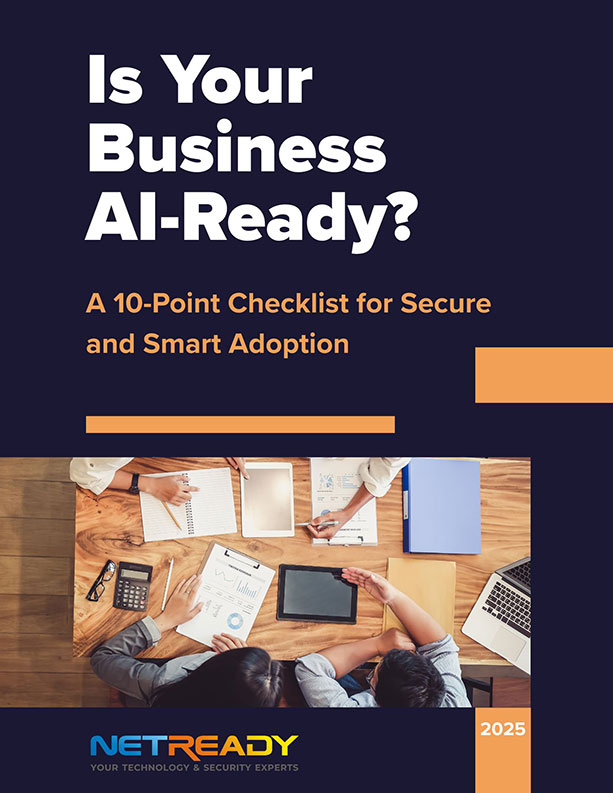
By Zac Abdulkadir, President and CEO of Netready
Operational resilience isn't just a buzzword—it's a necessity for survival and growth. As banks, investment advisors, and financial institutions navigate an increasingly complex regulatory landscape, compliance with FINRA and SEC rules demands proactive IT strategies that safeguard sensitive data, minimize disruptions, and foster trust with clients and regulators. Drawing on over 25 years of experience in IT and cybersecurity, including certifications such as CISSP, CISM, CISA, and CRISC, I've seen firsthand how robust compliance frameworks can transform potential vulnerabilities into competitive advantages. In this post, we'll explore the essentials of achieving operational resilience under FINRA and SEC guidelines, with practical insights tailored for financial firms.
Understanding FINRA and SEC Compliance Requirements
FINRA (Financial Industry Regulatory Authority) and the SEC (Securities and Exchange Commission) set stringent standards to ensure the integrity, security, and resilience of financial operations. FINRA focuses on broker-dealers and investment firms, emphasizing rules like Rule 4370, which mandates business continuity plans (BCPs) to address disruptions from cyberattacks, natural disasters, or system failures. Meanwhile, the SEC's Regulation S-P and recent amendments, including the 72-hour breach disclosure rule under Rule 10 of Regulation S-ID, require firms to report material cybersecurity incidents promptly and maintain safeguards for customer information.
These regulations aren't optional; non-compliance can result in substantial fines, reputational damage, and operational disruptions. For instance, SEC enforcement actions have surged, with penalties reaching millions for inadequate cybersecurity disclosures. As a member of the FBI's InfraGard program, I've collaborated on protecting critical infrastructure, and I can attest that financial firms are prime targets—facing up to 300 times more cyberattacks than other sectors. Building resilience starts with aligning IT infrastructure to these rules, ensuring that your systems not only comply but also enhance efficiency.
Key Pillars of Operational Resilience in Financial Services
To meet FINRA and SEC standards, financial institutions must adopt a multi-layered approach to IT security and compliance. Here are the core pillars:
- Robust Network Security and Monitoring: Implement firewalls, intrusion detection systems, and 24/7 SIEM (Security Information and Event Management) to detect threats in real-time. FINRA requires firms to test BCPs annually, including simulated cyberattacks, to ensure seamless failover.
- Data Protection and Encryption: Safeguard client data with end-to-end encryption and access controls, aligning with SEC's emphasis on protecting non-public personal information (NPPI). Regular vulnerability scanning can identify gaps before they become breaches.
- Incident Response and Disclosure Protocols: Under the SEC's 72-hour rule, firms must disclose breaches impacting operations or client data swiftly. Develop incident response plans that include forensic analysis and communication strategies to minimize fallout.
- Board-Level Oversight and Reporting: Both FINRA and SEC stress governance, requiring boards to review cybersecurity risks quarterly. This involves detailed reporting on metrics like downtime incidents and compliance audits.
By integrating these pillars, firms can reduce audit risks and turn compliance into a strategic asset. At Netready IT, our managed security services help financial clients achieve this through proactive monitoring, ensuring 24/7 availability without the burden of in-house expertise.
Strategies for Implementing FINRA and SEC Compliance
Transitioning to resilient operations requires a structured strategy. Start with a comprehensive Regulatory Readiness Assessment to map your current IT setup against FINRA and SEC requirements. This involves reviewing policies, conducting penetration testing, and simulating breach scenarios to pinpoint weaknesses.
Next, focus on employee training—human error accounts for a significant portion of breaches in finance. Tailored programs on phishing recognition and secure data handling can align with FINRA's continuing education mandates. Additionally, leverage cloud-based solutions for scalable backups and disaster recovery, ensuring compliance with SEC's data redundancy rules.
One effective tactic is adopting a virtual Chief Security Officer (vCSO) model, where external experts provide strategic guidance without long-term commitments. This is particularly valuable for SMBs in finance, offering enterprise-level insights at affordable, fixed monthly rates.
Case Studies: Real-World Resilience in Action
Consider a mid-sized investment firm we assisted at Netready IT. Facing FINRA scrutiny after a minor data leak, they implemented our network security enhancements and BCP testing. Within months, they not only passed their audit but also reduced incident response times by 50%, allowing them to focus on client growth.
Another example: A community bank struggling with SEC disclosure requirements adopted our 24/7 SIEM monitoring. When a phishing attempt was detected, our team neutralized it before escalation, ensuring compliance and preventing potential fines.
These cases underscore that resilience isn't about reacting—it's about anticipating. As the author of the bestselling book From Exposed to Secure, I emphasize that proactive IT turns regulations into opportunities, especially in finance, where trust is currency.
Overcoming Common Challenges
Financial firms often grapple with resource constraints, evolving threats, and integration hurdles. Budget limitations can render in-house compliance teams unfeasible, while rapid technological changes—such as AI-driven attacks—demand constant updates.
To address these:
- Prioritize Risk Assessments: Begin with free evaluations to identify high-impact areas, such as outdated software vulnerable to exploits.
- Outsource Strategically: Partner with providers offering no-contract flexibility, like Netready, to access certified experts without lock-ins.
- Foster a Culture of Compliance: Integrate security into daily operations through the use of automated tools and regular drills, ensuring alignment with FINRA and SEC regulations.
By tackling these challenges head-on, firms can achieve sustained resilience, minimize downtime, and enhance client confidence.
The Path Forward: Partnering for Success
Achieving operational resilience under FINRA and SEC rules is an ongoing journey, but with the right IT support, it's achievable and empowering. At Netready IT, we're committed to delivering tailored solutions for financial services, from free cybersecurity risk assessments to comprehensive compliance packages. Our 90-day money-back guarantee and personable help desk ensure you get results without risks.
Ready to fortify your firm? Contact us for a no-obligation consultation. Call our Pasadena office at (213) 463-2100, or our Inland Empire location at (951)-530-3700.
Lets Discuss Your IT Strategy
 Call Us Today 213-463-2100
Call Us Today 213-463-2100
Book a Free Consultation.

Zac Abdulkadir
President and CEO of Netready
With a career spanning more than 25 years, Zac Abdulkadir
is a recognized authority in cybersecurity and IT compliance,
dedicated to protecting businesses from evolving threats.

 310-553-3055
310-553-3055 213-463-2100
213-463-2100
